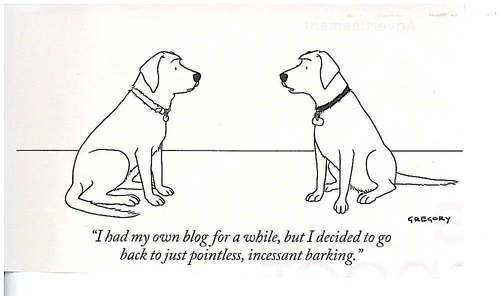Writing in the LRB, Jim Holt thinks it is…
Iraq is ‘unwinnable’, a ‘quagmire’, a ‘fiasco’: so goes the received opinion. But there is good reason to think that, from the Bush-Cheney perspective, it is none of these things. Indeed, the US may be ‘stuck’ precisely where Bush et al want it to be, which is why there is no ‘exit strategy’.
Iraq has 115 billion barrels of known oil reserves. That is more than five times the total in the United States. And, because of its long isolation, it is the least explored of the world’s oil-rich nations. A mere two thousand wells have been drilled across the entire country; in Texas alone there are a million. It has been estimated, by the Council on Foreign Relations, that Iraq may have a further 220 billion barrels of undiscovered oil; another study puts the figure at 300 billion. If these estimates are anywhere close to the mark, US forces are now sitting on one quarter of the world’s oil resources. The value of Iraqi oil, largely light crude with low production costs, would be of the order of $30 trillion at today’s prices. For purposes of comparison, the projected total cost of the US invasion/occupation is around $1 trillion.
Who will get Iraq’s oil? One of the Bush administration’s ‘benchmarks’ for the Iraqi government is the passage of a law to distribute oil revenues. The draft law that the US has written for the Iraqi congress would cede nearly all the oil to Western companies. The Iraq National Oil Company would retain control of 17 of Iraq’s 80 existing oilfields, leaving the rest – including all yet to be discovered oil – under foreign corporate control for 30 years. ‘The foreign companies would not have to invest their earnings in the Iraqi economy,’ the analyst Antonia Juhasz wrote in the New York Times in March, after the draft law was leaked. ‘They could even ride out Iraq’s current “instability” by signing contracts now, while the Iraqi government is at its weakest, and then wait at least two years before even setting foot in the country.’ As negotiations over the oil law stalled in September, the provincial government in Kurdistan simply signed a separate deal with the Dallas-based Hunt Oil Company, headed by a close political ally of President Bush.
How will the US maintain hegemony over Iraqi oil? By establishing permanent military bases in Iraq. Five self-sufficient ‘super-bases’ are in various stages of completion. All are well away from the urban areas where most casualties have occurred. There has been precious little reporting on these bases in the American press, whose dwindling corps of correspondents in Iraq cannot move around freely because of the dangerous conditions. (It takes a brave reporter to leave the Green Zone without a military escort.) In February last year, the Washington Post reporter Thomas Ricks described one such facility, the Balad Air Base, forty miles north of Baghdad. A piece of (well-fortified) American suburbia in the middle of the Iraqi desert, Balad has fast-food joints, a miniature golf course, a football field, a cinema and distinct neighbourhoods – among them, ‘KBR-land’, named after the Halliburton subsidiary that has done most of the construction work at the base. Although few of the 20,000 American troops stationed there have ever had any contact with an Iraqi, the runway at the base is one of the world’s busiest. ‘We are behind only Heathrow right now,’ an air force commander told Ricks…

